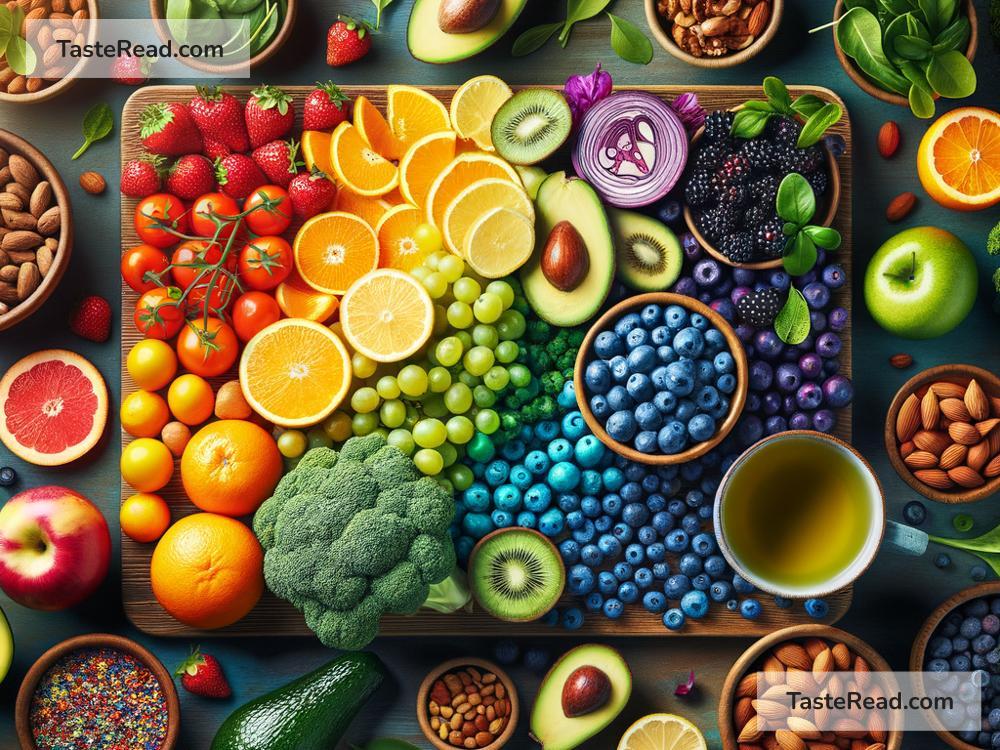Foods for Reducing Burnout: Eat Your Way to Better Energy and Mood
Burnout isn’t just feeling tired after a busy day—it’s deeper, affecting your physical, emotional, and mental health. Busy schedules, endless responsibilities, and stress can leave you feeling drained. What you eat plays a big role in how you feel. The right foods can give your body and brain the fuel they need to recover and fight burnout effectively.
Here’s a simple guide to foods that can help reduce burnout while boosting your energy and mental clarity.
1. Focus on Whole Foods
When struggling with burnout, it’s important to stay away from processed foods like chips, cookies, and fast food. These items may taste good but often leave you feeling sluggish. Instead, choose whole foods like fruits, vegetables, whole grains, nuts, seeds, and lean proteins. These natural foods offer steady energy and are packed with vitamins and minerals.
2. Prioritize Fruits and Vegetables
Fruits and vegetables are rich in antioxidants, which help reduce stress in your body. When you’re burned out, your body creates more harmful molecules called free radicals. Antioxidants fight these harmful molecules to protect your cells.
Some great options include:
– Blueberries: Full of antioxidants, they’re great for calming your body’s stress response.
– Spinach: Packed with magnesium, which helps relax muscles and reduce stress.
– Oranges and Kiwi: Loaded with vitamin C, they improve immunity and lower stress hormones.
Try adding more fruits and veggies to your meals or snack on them throughout the day.
3. Fuel Your Brain with Healthy Fats
Healthy fats keep your brain working properly, which is crucial when dealing with burnout. These fats also help lower inflammation in the body, which can be triggered by stress.
Go for foods like:
– Avocados: High in healthy fats and B vitamins, which boost energy and brain health.
– Nuts (like almonds or walnuts): Rich in omega-3 fatty acids that support brain function and reduce stress.
– Olive Oil: A heart-healthy fat to use in cooking or salads.
Small portions of these foods go a long way in improving mood and focus.
4. Balance Blood Sugar with Complex Carbs
Burnout often leaves you feeling fatigued, and that’s where complex carbs come in. Unlike sugary snacks that make your energy crash soon after, complex carbohydrates provide slow-burning fuel.
Choose:
– Brown rice
– Oats
– Quinoa
– Sweet potatoes
These carbs also increase serotonin levels, a mood-boosting chemical in your brain. A steady source of energy can help carry you through the day without feeling drained.
5. Don’t Forget Protein
Protein is essential for repairing your body and keeping your muscles strong. It also helps stabilize your mood and hunger levels.
Great protein sources include:
– Lean chicken or turkey: Low-fat options that give you steady energy.
– Eggs: Easy to prepare and full of nutrients.
– Greek yogurt: High in protein and probiotics to help your gut health.
– Beans and Lentils: For plant-based protein with added fiber.
Include a source of protein in every meal to protect your body from the effects of stress.
6. Stay Hydrated
Dehydration can make burnout symptoms worse. It can leave you feeling tired, foggy, and cranky. Drinking enough water every day helps your body function better and improves your focus.
Other helpful options:
– Herbal teas: Chamomile or peppermint teas can calm your nervous system.
– Coconut water: A natural drink to replenish electrolytes lost during stress.
Don’t wait until you feel thirsty—keep sipping water throughout the day to avoid dehydration.
7. Boost Energy with Superfoods
Certain foods are packed with nutrients that are specifically helpful for stress and burnout. These superfoods can give your body the extra boost it needs.
Examples include:
– Dark Chocolate: Contains magnesium and compounds that lower stress hormones (choose low-sugar options).
– Turmeric: Known for its anti-inflammatory properties. Add it to soups, curries, or even tea.
– Chia Seeds: A tiny powerhouse of omega-3s, protein, and fiber for sustained energy.
Incorporating small amounts of these superfoods into your meals can make a big difference in how you feel.
8. Limit Caffeine and Sugar
It may be tempting to rely on coffee or sugary snacks when you’re feeling burned out. While these give you a temporary boost, they often lead to energy crashes later. Instead, reduce your coffee intake or replace it with green tea for gentler energy. Avoid eating too much sugar—it can increase feelings of fatigue and anxiety.
9. Create a Healing Meal Routine
Burnout makes it hard to prioritize healthy eating, but skipping meals or eating junk food only adds to the problem. Try creating simple routines for healthy eating:
– Start your day with a balanced breakfast, such as oats topped with fruit and nuts.
– Prep meals ahead of time, such as grilled chicken with steamed vegetables and brown rice.
– Keep healthy snacks on hand, like almonds, fruit, or yogurt.
Small daily steps can help restore your energy and make you feel more in control.
Final Thoughts
Recovering from burnout takes time and effort, but what you eat plays a significant role in speeding up the process. Whole foods, healthy fats, complex carbs, and protein help your body repair and energize itself. Fruits, vegetables, and superfoods pack the vitamins and minerals your body craves during stressful times.
Make small changes to your diet, stay hydrated, and prioritize nourishing meals. Combined with rest, mindfulness, and support, these foods can be a powerful tool in reducing burnout. Eat well, and you’ll soon feel stronger, calmer, and ready to take on life’s challenges.


